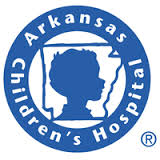Cognitive AED Outcomes in Pediatric Localization Related Epilepsy (COPE)
| Status: | Active, not recruiting |
|---|---|
| Conditions: | Neurology |
| Therapuetic Areas: | Neurology |
| Healthy: | No |
| Age Range: | 5 - 16 |
| Updated: | 4/21/2016 |
| Start Date: | August 2013 |
| End Date: | April 2016 |
Seizures that arise in specific areas in the brain are called Localization Related Epilepsy
(LRE) and are the most common seizure disorder in children. Children that receive drug
treatment for this disorder may suffer from treatment related side effects which impact
their ability to think or concentrate and their ability to interact socially. These negative
treatment effects can impact the child's performance in school and long term may impact
employment and job options.
This study will determine whether changes in attention and social interactions are seen in
children treated for LRE using three of the most common medications used to treat pediatric
LRE. Children who are newly diagnosed with LRE by their doctors and are between 6-12 years
of age will be randomized to receive levetiracetam, lamotrigine, or oxcarbazepine.
There will be 12 study sites throughout the US. Children will undergo evaluation of their
thinking and ability to pay attention before and after starting drug treatment for LRE.
Regardless of the specific findings, results of this study will provide the information
needed to help parents and their clinicians choose treatment options that maximize cognitive
abilities in children with LRE, and provide the data needed for practice guidelines to be
established on the basis of cognitive side effect risks.
(LRE) and are the most common seizure disorder in children. Children that receive drug
treatment for this disorder may suffer from treatment related side effects which impact
their ability to think or concentrate and their ability to interact socially. These negative
treatment effects can impact the child's performance in school and long term may impact
employment and job options.
This study will determine whether changes in attention and social interactions are seen in
children treated for LRE using three of the most common medications used to treat pediatric
LRE. Children who are newly diagnosed with LRE by their doctors and are between 6-12 years
of age will be randomized to receive levetiracetam, lamotrigine, or oxcarbazepine.
There will be 12 study sites throughout the US. Children will undergo evaluation of their
thinking and ability to pay attention before and after starting drug treatment for LRE.
Regardless of the specific findings, results of this study will provide the information
needed to help parents and their clinicians choose treatment options that maximize cognitive
abilities in children with LRE, and provide the data needed for practice guidelines to be
established on the basis of cognitive side effect risks.
Inclusion Criteria:
- Age of participant between 5 years, 6 months and 16 years, 0 months at the time of
enrollment
- Weight is between ≥ 15 kg the lower limit BMI 99th percentile at study entry at study
entry
- Child has a diagnosis of Localization Related Epilepsy (LRE) with or without
secondary generalization according to International League Against Epilepsy (ILAE)
criteria and which may include Benign Rolandic Epilepsy and Benign Occipital Epilepsy
or other LREs.
- Localization related seizures will be based upon at least one of the following: 1)
focal EEG abnormalities (sharp waves, spikes, or slowing) and the absence of
generalized spike waves discharges, 2) focal MRI abnormalities other than active
cysticercosis, which may include temporal lobe sclerosis, dysembryoplastic
neuroepithelial tumor , ganglioglioma, or focal malformations of cortical
development, 3) focal neurologic abnormalities, or 4) clinical semiology, which may
include Todd's phenomenon, unilateral dystonia, or fencing posture, or distinct aura
consistent with localization related seizure onset (e.g., classic déjà vu or bad
smell).
- Participants must either be AED therapy naïve or on an AED (excluding
benzodiazepines) for 1-week or less. Children may be on a stable dose of
psychostimulants at the time of enrollment, but no change in medication, dose, or
schedule in 3 months prior to study enrollment, with no anticipated dosing changes
during the 6 months of the study. If participants are taking psychostimulants at the
time of study entry, they should plan on continuing them for the 6 month duration of
the study protocol including the 3-month and 6-month cognitive and behavioral testing
time points.
- Females of child bearing potential must agree to acceptable forms of birth control,
which may include abstinence.
- The child's parent/guardian must be able to keep an accurate seizure diary and be
able and willing to comply with instructions and study procedures.
- Informed consent from the child's legal guardian or legal representative.
- Assent will be obtained from children according to each site's institutional
guidelines.
Exclusion Criteria:
- Children with history of primary generalized seizures (absence, myoclonic, drop)
- Children with mixed seizure disorder (e.g., Lennox-Gastaut Syndrome)
- Children with sensory seizures only (i.e., auras)
- Children with 6+ seizures in the previous week
- Children with a history of status epilepticus
- Children with a history of neonatal seizures
- Children with diagnoses of pervasive developmental disorders (e.g., autism/autism
spectrum disorders)
- Children with progressive neurological disease (e.g., degenerative, progressive
neoplasm)
- Children with major medical disease (e.g., IDDM, cancer, renal failure)
- Children with diseases with cognitive impact (e.g., inborn errors of metabolism,
sickle cell disease with history of stroke)
- Children with active cystercercosis documented on MRI
- Children with cognitive impairment of sufficient severity that, in the opinion of the
investigator, would diminish the likelihood of valid test performance (roughly
corresponding to FSIQ less than 70)
- Children with suicide attempt(s) at any point during their lifetime
- Children with active suicide ideation
- Children with chronic use of first generation antihistamines
- Children using recreational drugs (including alcohol)
- Children not fluent in either English or Spanish
- Female children who are pregnant
- Female children who are using oral contraceptives for birth control or for any other
indication (e.g. acne treatment)
We found this trial at
14
sites
Arkansas Children's Hospital Arkansas Children's Hospital (ACH) is the only pediatric medical center in Arkansas...
Click here to add this to my saved trials
Johns Hopkins University The Johns Hopkins University opened in 1876, with the inauguration of its...
Click here to add this to my saved trials
Click here to add this to my saved trials
Children's Hospital of Philadelphia Since its start in 1855 as the nation's first hospital devoted...
Click here to add this to my saved trials
Washington University Washington University creates an environment to encourage and support an ethos of wide-ranging...
Click here to add this to my saved trials
Click here to add this to my saved trials
Children's Hospital Colorado At Children's Hospital Colorado, we see more, treat more and heal more...
Click here to add this to my saved trials
Boston Children's Hospital Boston Children's Hospital is a 395-bed comprehensive center for pediatric health care....
Click here to add this to my saved trials
Click here to add this to my saved trials
Click here to add this to my saved trials
Click here to add this to my saved trials
Virginia Commonwealth University Since our founding as a medical school in 1838, Virginia Commonwealth University...
Click here to add this to my saved trials
Click here to add this to my saved trials
111 Michigan Ave NW
Washington, District of Columbia
Washington, District of Columbia
(202) 476-5000

Childrens National Medical Center As the nation’s children’s hospital, the mission of Children’s National Medical...
Click here to add this to my saved trials






